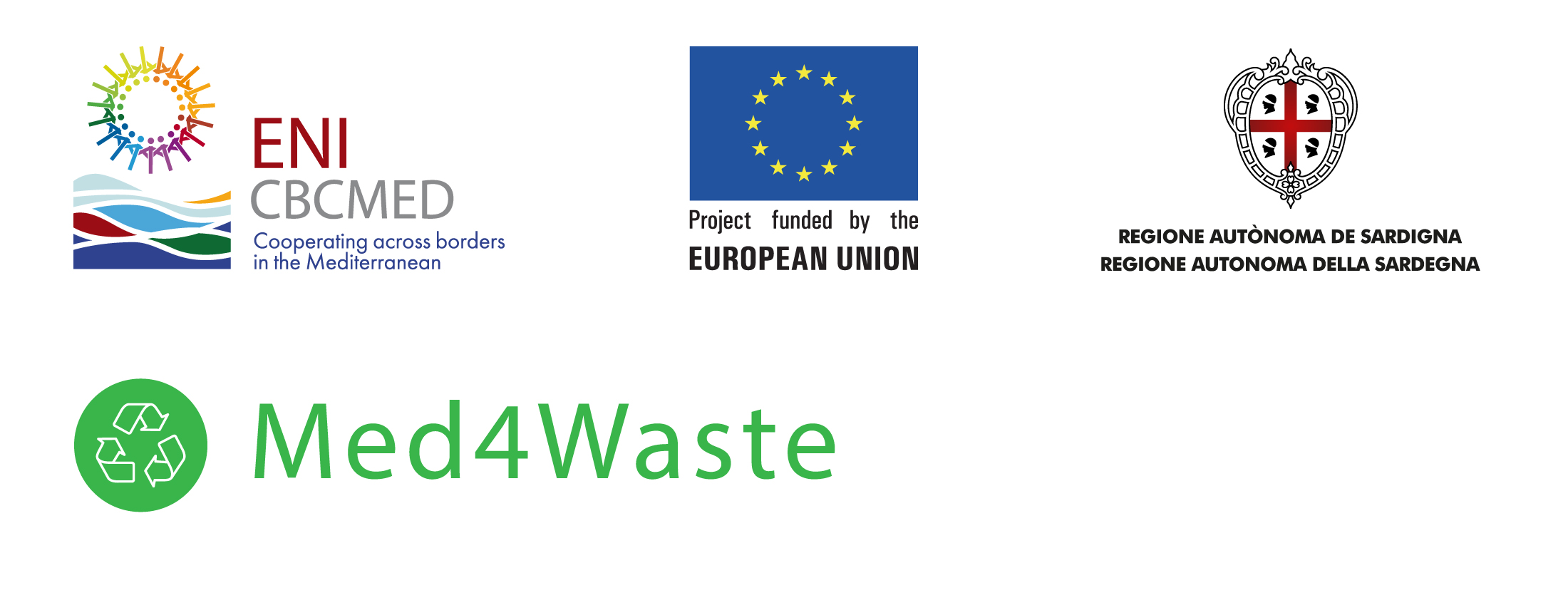The current production and consumption patterns in the Mediterranean have worrying environmental impacts and are further accelerated by climate change impacts, exerted by land-use (urbanization, agricultural intensification), pollution and declining biodiversity.
Med4Waste is funded by the ENI CBC Mediterranean Sea Basin Programme (Capitalisation Project) and aims to facilitate new governance models for integrated and efficient urban waste management policies across the Mediterranean, with particular emphasis on organic waste and circular economy.
MIO-ECSDE is a key partner of this project bringing its expertise in the policy-society interface, stakeholder engagement and capacity building for sustainable waste prevention. MIO-ECSDE is co-leading the policy dialogue and mainstreaming, and cross fertilization activities of the project.
The project partners are from Spain, Greece, Tunisia, Lebanon, Jordan, and Italy.
Find more info about Med4Waste here

- Level of completion 1%
Med4Waste aims to build on and improve existing knowledge, to foster the capitalization of innovative, integrated and effective social practices of the public, private and social sectors in waste management, with a particular focus on waste prevention, circular economy practices and the organic component.
Guidance and training to public administrations and relevant private and social actors will be provided, to implement transfer actions and to facilitate new governance models for integrated and efficient urban waste management policies across the Mediterranean.
This project will capitalize on the results of projects already implemented under the ENI CBC MED 2014-2020 program and other EU instruments.
- Building on and improving existing knowledge, to foster capitalisation of socially innovative, integrated and efficient practices from public, private and social sectors in waste management across the Mediterranean region, with special focus on waste prevention and circular economy approaches.
- Offering guidance and training for public administrations and relevant private and social stakeholders, to apply transferring actions and exploitation measures and to support planning, adapting and re-addressing of waste management plans, policies and other management actions and normative drivers (regulations, financial plans, service contracts).
- Supporting dissemination of key results and increasing awareness among key stakeholders, promoting cross-border and cross-sectorial networking, and fostering long-term commitment of decision and policy makers to promote an environmental, socio-economic and institutional transition towards green growth.
- Mapped Mediterranean case studies, practices, experiences and technologies in waste reduction, reuse, and recycling, waste disposal and separation of waste at source to reach higher efficiency in organic waste sorting, compost and combusting for energy recovery (bioenergy and materials).
- Increased awareness of multiple stakeholders on the importance of waste management and circular economy approaches that have resulted in real improvements.
- Enhanced capacities of key stakeholders to transfer the identified most relevant waste management practices.
- Developed integrated municipal solid waste management plans, aligned to the regulatory/legislative framework of each country.
- Mainstreaming of project recommendations for integrated waste management plans with a more effectively engaged private sector.
- Fostering of green employment in the Mediterranean and enhanced markets for recyclables.
- Direct contribution to the implementation of the “2030GreenerMed” Agenda of the Union for the Mediterranean.
- Fundació Universitària Balmes (Universitat de Vic – Universitat Central de Catalunya) (Spain)
- MedCities Association (Spain)
- Mediterranean Information Office for Environment, Culture and Sustainable Development (Greece)
- Union of Mediterranean Confederations of Enterprises (Tunisia)
- Environment and Sustainable Development Unit, American University of Beirut (Lebanon)
- EDAMA – Association for Energy, Water and Environment (Jordan)
- COSPE – Cooperation for the development of Emerging Countries (Italy)
Title: Mediterranean Dialogue for Waste Management Governance (Med4Waste)
Funding instrument: 2014-2020 ENI CBC “Mediterranean Sea Basin Programme”
Thematic axis: Environmental protection, climate change adaptation and mitigation (Address common challenges in environment)
Objective: Reduce municipal waste generation and promote source separated collection and the optimal exploitation of its organic component
Project duration: October 2021 – October 2023 (24 months)
Project budget: EUR 1.110.655,24